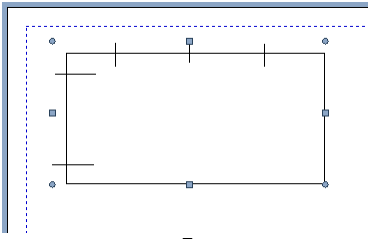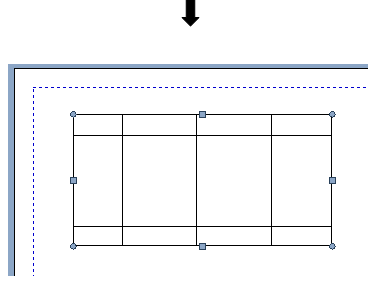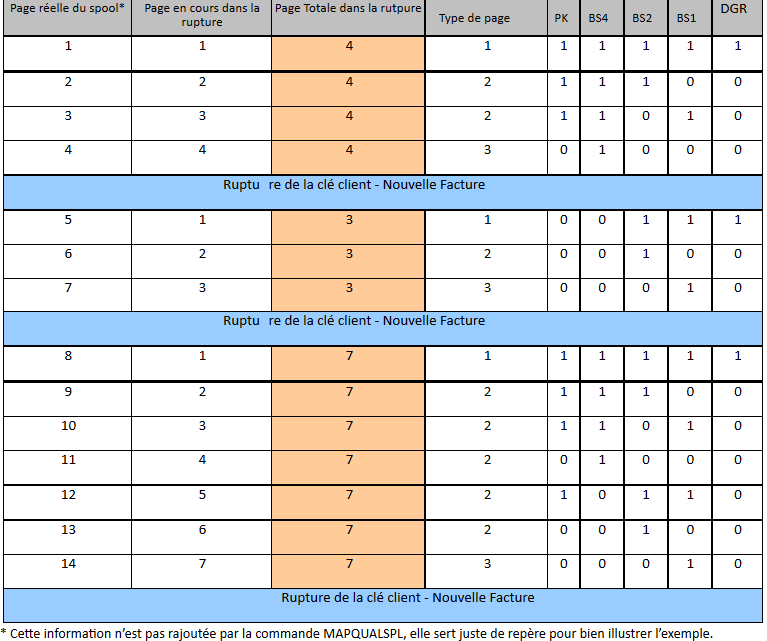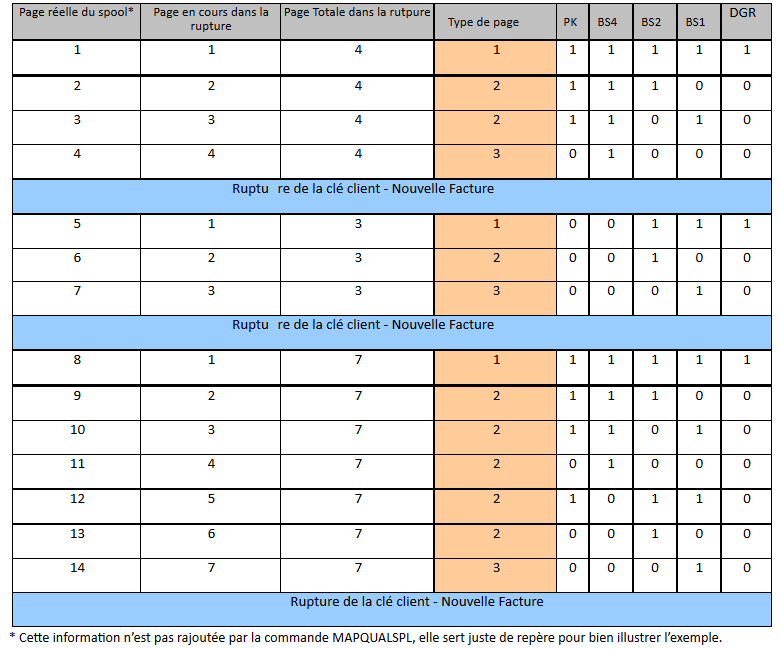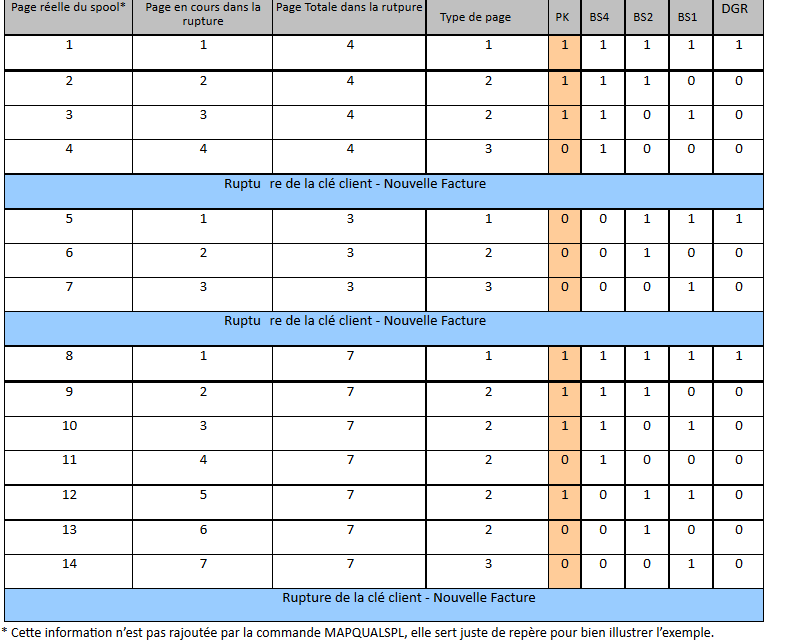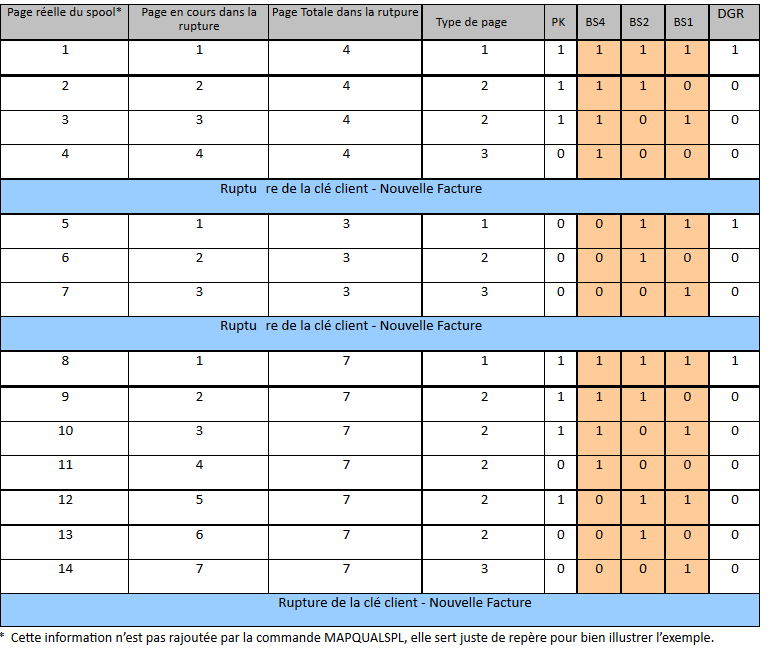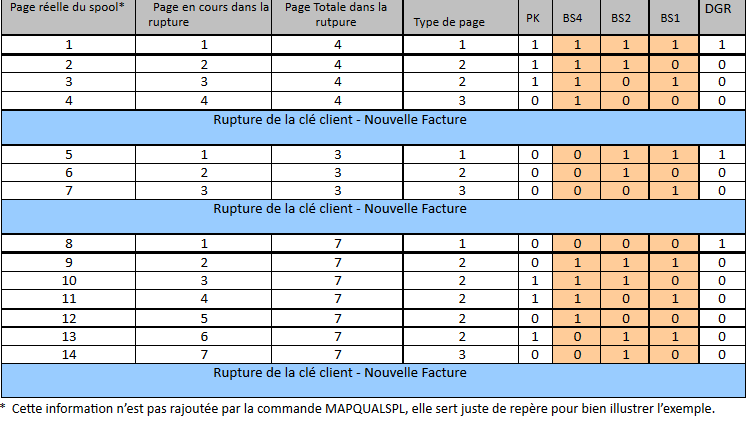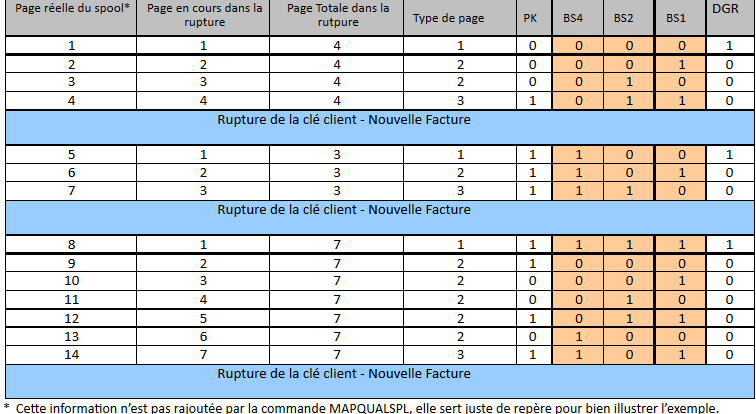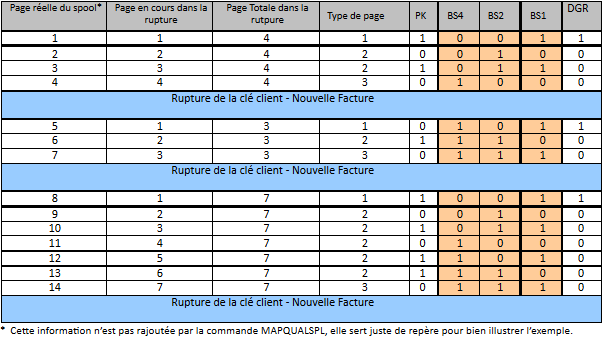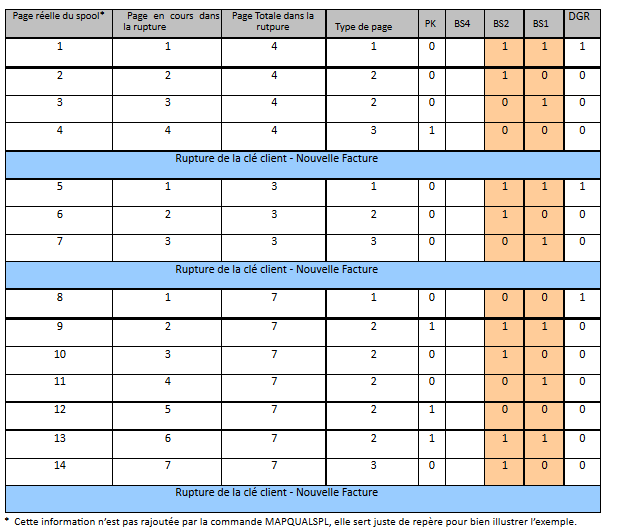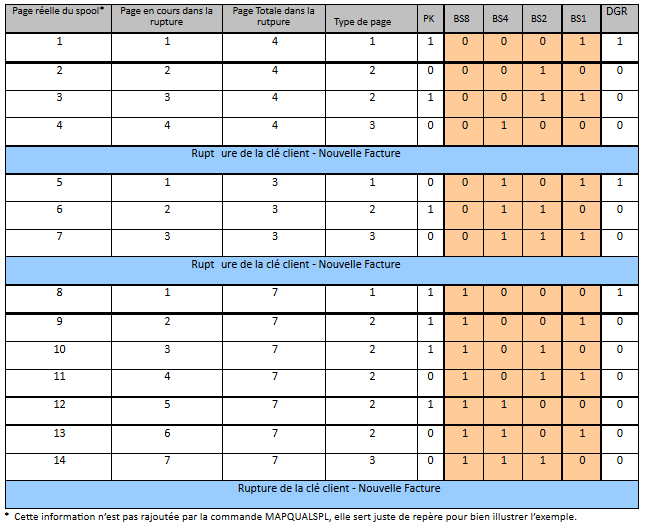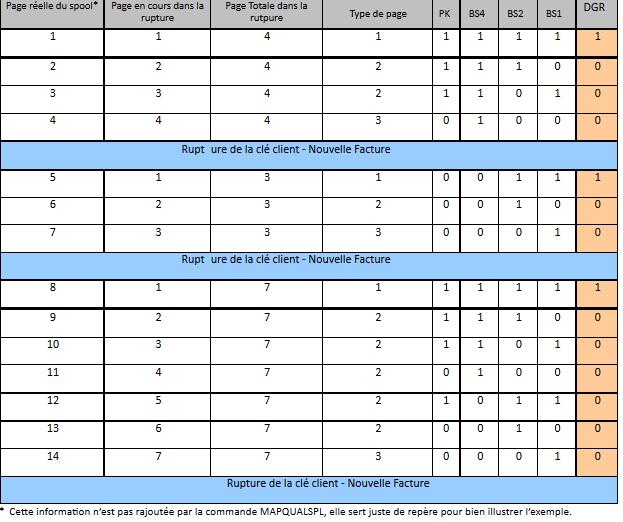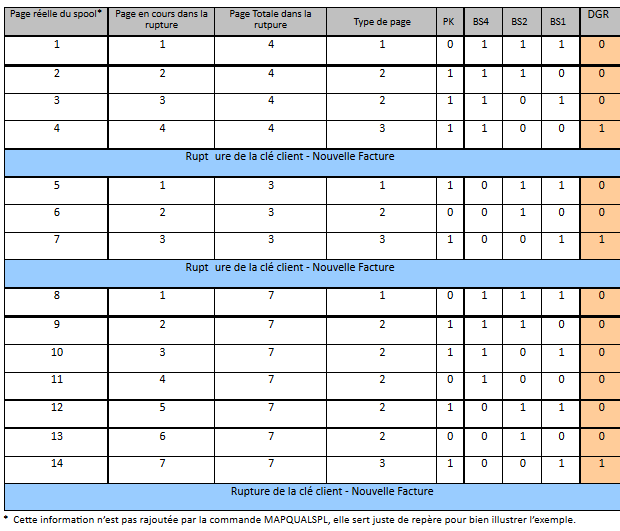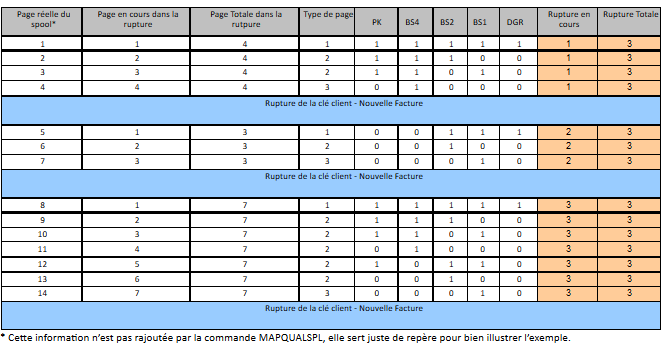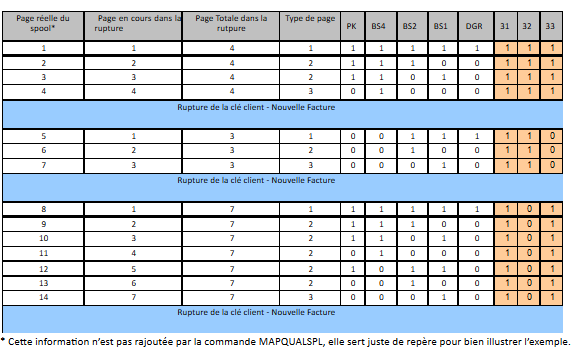OPALE - 10.0 - Utilisation - Gestion des codes OMR/en
Différence entre versions
(Page créée avec « The values for this parameter can be: " ", "7","8", "R", "4" or "T". These have the same meaning as the security bits (BS4, BS2, BS1). Please see the dedicated section, BS... ») |
|||
| (7 révisions intermédiaires par le même utilisateur non affichées) | |||
| Ligne 19 : | Ligne 19 : | ||
Name of DataBase for sort . . . NAME SORTDB | Name of DataBase for sort . . . NAME SORTDB | ||
| − | Line Number . . . . . . . . . . LINE 1 | + | <span style="background-color:Yellow;> Line Number . . . . . . . . . . LINE 1 </span> |
| − | Column Number . . . . . . . . . COL 1 | + | <span style="background-color:Yellow;> Column Number . . . . . . . . . COL 1 </span> |
Create spool file . . . . . . . CREATE *YES | Create spool file . . . . . . . CREATE *YES | ||
| Ligne 150 : | Ligne 150 : | ||
| − | You | + | You can add this information using the MAPQUALSPL command and the SEQUENCE MODULO parameter. |
| Ligne 162 : | Ligne 162 : | ||
The values for this parameter can be: " ", "7","8", "R", "4" or "T". These have the same meaning as the security bits (BS4, BS2, BS1). Please see the dedicated section, BS4, BS2, BS1: security bits, to know the meaning of these values. | The values for this parameter can be: " ", "7","8", "R", "4" or "T". These have the same meaning as the security bits (BS4, BS2, BS1). Please see the dedicated section, BS4, BS2, BS1: security bits, to know the meaning of these values. | ||
| − | + | If you wish to you can leave this parameter empty. | |
| − | + | Be careful: These three bits are taken into consideration when calculating parity. | |
Version actuelle datée du 11 juin 2019 à 11:57
Managing OMR marks
Introduction
You can compile information in a spooled filed to set up sealing marks using the MAPQUALSPL command on OPALE Server.
Common use: The following example will give you an in depth explanation of the MAPSQALSPL command
There are 14 pages in this spooled file, the first 4 pages are about our client Mr. Dupond, the following 3 pages are about Mr. Durand and the last 7 pages are about Mr. Lemaire. In this example, we will qualify the spooled file using the "Client name" as a sorting key with command MASQUALSPL.
Know that information is added to the spooled file according to the position defined for it in the command (highlighted in yellow here) and that the information added overwrites the existing information if there is any: you will then need to select an empty space on the page.
MAPQUALSPLF (MAPQUALSPL)
Name of DataBase for sort . . . NAME SORTDB
Line Number . . . . . . . . . . LINE 1
Column Number . . . . . . . . . COL 1
Create spool file . . . . . . . CREATE *YES
Spoolfile Name to Create . . . . SPLFNAME SORTSPLF
Outq . . . . . . . . . . . . . . OUTQ *JOB
Outq Library . . . . . . . . . . OUTQLIB *LIBL
Hold spool file . . . . . . . . RDY *NO
Control sort splfname . . . . . CONTROL N Input spool file length . . . . SIZE 255
Input spool file height . . . . HEIGHT 255
Input spool file overflow . . . OVERFLOW 60
Modulo . . . . . . . . . . . . . MODULO '7'
Sequence modulo . . . . . . . . MODSEQ ' '
Max. quota . . . . . . . . . . . QUOTA '0'
Use duplex . . . . . . . . . . . DUPLEX 'N'
Positions 1 to 6 - Increment of the page number inside the break.
Positions 7 to 12 - Total page number in the break
Position 13 - Break code
- 1: Page "heading" (first)
- 2: Page "next" (middle)
- 3: Page "total" (last)
Positions 14 to 18 - Code of Kern-type sealing
Parity bit: The parity bit changes automatically. It is calculated according to the value the BS4, BS2, BS1 and DGR bits. If the total sum of BS4, BS2, BS1 and DGR is even-numbered, then, the value for the parity bit is 1. Otherwise, when this sum is odd-numbered, the value for the parity bit is 0.
BS4, BS2, BS1: Security bits
Decrement or increment of a binary value for each page.
You can select the coding mode when launching the MAPQUASPL and changing the MODULO parameter according to your need.
Modulo 7
Decrement from value 7 (111 – in binary) to value 1 (001 – in binary)
Modulo 8
Decrement from value 7 (111 – in binary) to value 0 (000 – in binary)
Modulo R
Increment from value 0 (000 – in binary) to value 7 (111 – in binary)
Modulo T
Increment from value 1 (001 – in binary) to value 7 (111 – in binary)
Modulo 4
Decrement from value 4 (11 – in binary) to value 0 (00 – in binary)
Modulo F
Increment from value 1 (0001 – in binary) to value 15 (1111 – in binary)
DGR - Sealing code
Depending on your sealing device, the sealing code for an enveloppe is either placed on the first or last page. The "Insert tag on last page" parameter of the MAPQUALSPL helps you know the position of the closing bit.
If « Insert tag on last page . . . . 'N' » then DGR = 1 on the first page.
If « Insert tag on last page . . . . 'O' » then DGR = 1 on the last page.
Curent break - Total number of breaks (Position 19-24 and 25-30)
When launching command MAPQUALSPL, you can add two pieces of information: the current break and the total number of breaks.
To add this information, you need to run the MAPQUASPL command with the "Add number of break values . . ." command set to 'O'.
Positions 31 to 33 – Increment or decrement at each break
For even more security, some sealing devices run a troubleshooting test after every break in the spooled file.
You can add this information using the MAPQUALSPL command and the SEQUENCE MODULO parameter.
Sequence Modulo 7
The values for this parameter can be: " ", "7","8", "R", "4" or "T". These have the same meaning as the security bits (BS4, BS2, BS1). Please see the dedicated section, BS4, BS2, BS1: security bits, to know the meaning of these values.
If you wish to you can leave this parameter empty.
Be careful: These three bits are taken into consideration when calculating parity.
